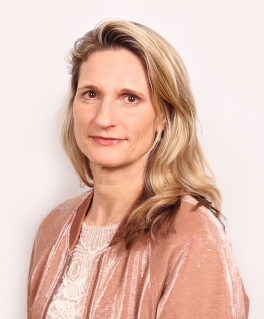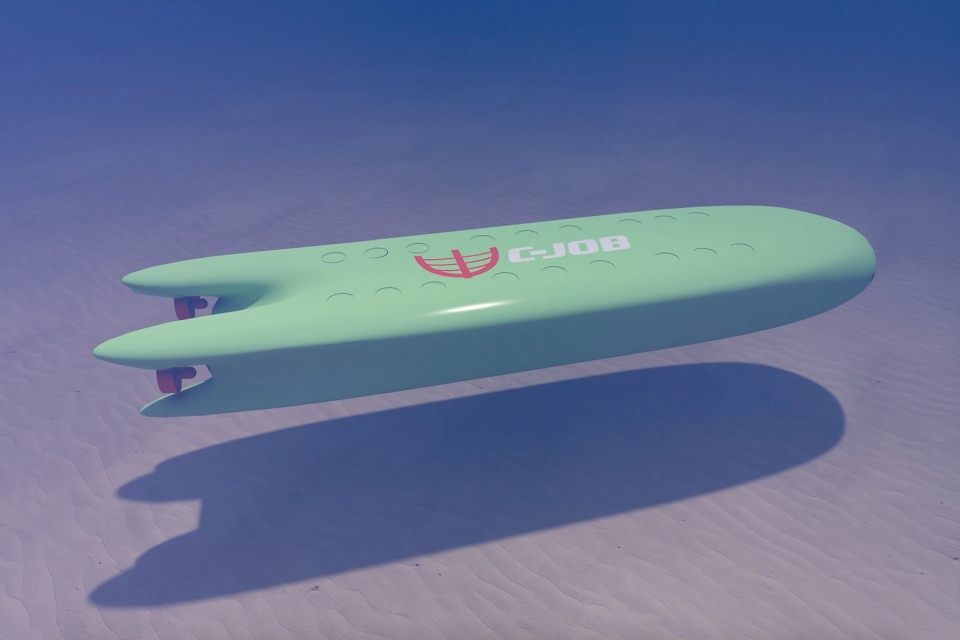From the magazine – These days, maritime companies are not just competing with each other for skilled people, they are also competing with other industries. To attract and retain talent, the industry must adapt to the changing circumstances. C-Job explains how they go about this.

This article was written by Monique Reulink, HR manager at C-Job Naval Architects, m.reulink@c-job.com. It was originally published in SWZ|Maritime’s January 2024 education and labour market special.
There is no way around it – the labour market is tight. While some industries have only started experiencing this phenomenon in recent years, the maritime industry has been struggling with this for quite some years. The maritime industry is diverse, requires different skill sets, and has a place for all. Even when the industry struggles, the need for talent remains.
C-Job Naval Architects is an independent ship design company passionate about driving innovation in the maritime sector as well as ensuring a greener future for the industry. Our projects cover a wide range of markets including offshore, dredging, passenger vessels, mega yachts, and commercial vessels. We provide full-scope and custom vessel designs, including integration engineering for new builds, conversions, and modifications.
At C-Job, we embrace the uniqueness of every project, necessitating a customised approach for each one. This ever-changing environment calls for an adaptable mindset from our employees and requires a strong workforce to deliver high-quality designs to our clients. This means we are always on the lookout for skilled engineers with a background in naval architecture, mechanical engineering, structural engineering, or electrical engineering across a variety of experience.
In addition, it is not just engineers we are looking for. As C-Job has a thriving Research & Development department, we also search for software engineers and data scientists for example. And of course, we have a full team that supports business functions such as HR, marketing, sales, and finance.
Just like other companies in the maritime industry, C-Job too has experienced the tightness of the maritime labour market. Nonetheless, we are still able to attract the necessary talent with the right fit for our organisation.
Also read: C-Job partners with Meyer Group
Similar mindset
As an international organisation with seven offices across five countries, we require our employees to embrace the global mindset. With our aim to decarbonise the maritime industry within one generation, we take pride in pushing the boundaries of what has been accomplished before and we seek individuals who share this ambition.
Our team accomplishes our goals together, which is reflected in how we work. The various disciplines such as naval architecture, mechanical engineering, and structural engineering, to name but a few, work together in tandem rather than in silos. This is not only true for the type of work, but also for location. Project teams are a true reflection of our global company with people from offices in Hoofddorp, Gdansk, and Athens working together on the same project.
This collaborative culture and these multidisciplinary teams are not everyone’s cup of tea. Therefore, showcasing what it is like working at C-Job is paramount. In real terms, this means that in recent years we’ve needed to update our ways of recruiting. We saw that there was a misalignment with what candidates perhaps expected based on what job listings communicated versus what the actual job entailed.
I’m proud to say that our vacancies are not a standard list of candidate requirements with a set list of responsibilities and instead allow the candidate a proper peek into what C-Job and their future job is about. It is important to not only attract the right people for the job, but also to limit the percentage of drop offs throughout the recruitment process and updating our job listings was a good way to guarantee this. Nothing is more frustrating for both candidate and company as when there is a mismatch in expectations.

Culture
When you have worked hard to attract an employee, it is key to retain them for the long term. When you promise a candidate you are a fun company to work for, that does exciting projects and that feels like a family, you must deliver. That’s exactly what we do at C-Job.
Since starting in 2007, C-Job has experienced a fast growth. The company we were when we first started – just a small team in one office to now 200 employees worldwide – is not the same today. That is OK. What we have done is grown with it, keeping our culture, values and DNA so that both those who were there when we first started and those who have come on board recently feel right at home.
Culture and DNA are a big part of it, we celebrate our success – both on an individual and business level. It is not easy to maintain the familiarity, the “everyone knows everyone” kind of smallness when organisations grow, but we can confirm we are successful at it, as a common positive remark at C-Job is that our people highly appreciate the informal way of interacting, working together, and the higher management being easily accessible to all.
Investing in people is another important element. When you’ve got people who have been with the company for over ten years, how do you keep supporting them in their journey while the company continues to grow? C-Job realises that no two people are the same. Skill sets differ, ambitions are unique to each person. We believe that it is important for employees to constantly develop their skills, not only for the benefit of the company, but also for their personal development.
We take an active role to support employees in developing their skills in order to fulfil their current position, but also to make next steps in their career. Offering tailor-made training based on the individual’s needs is important and a great way to make employees feel engaged and motivated.
Due to the set-up of projects, it is often possible for people to work on project tasks outside their regular scope giving them experience in a variety of work activities, as well as giving them room to develop themselves. Based on what people need and want, we also offer group training in house, or external individual trainings on both soft skills and functional technical trainings.
Also read: How new C-Job ship design tool reduces lead time by up to 50%
Student roles
The fostering of a new generation is important to all industries, but especially in specialised fields like the maritime industry, and the upbringing of that future generation starts with education. As a maritime company, C-Job is a part of this process, and to do so, it’s our duty to help the industry grow by supplying internship placements to schools and students.
There are a broad range of activities which students can take part in within our organisation from starter internships, where students learn what it’s like to work in an office environment, to technical internships, where students work on their Bachelor’s or Master’s degree, or even PhDs. This is also why we sponsor several maritime focused student associations.
Finding eager students to fulfil these roles at our company is important. As we’re an innovative company within the industry, some students specifically seek us out after seeing one of our R&D projects, like the Autonomous Underwater Maintenance Dredger (AUMD) or our research into alternative fuels, such as nuclear power and methanol. When students see exciting projects like ours, they are motivated to take on similar projects and push their boundaries to try something new and exciting.
C-Job takes an active role in collaborating with student associations and events, often giving presentations to students and taking part in symposiums. We see how important it is to give students real world examples of problems in the maritime industry so that they realise that we also face serious challenges, but that we know how to deal with them and always think of creative solutions.
After completing their internships, many students are eager to stay within C-Job once they’ve graduated because of our unique company and way of working. It is not uncommon for us to offer Junior positions to those who completed internships with us and have shown they are a great fit to the company.

The next generation
The maritime industry is ever evolving and at the cusp of some big changes. Thinking of the energy transition that started a few years ago and the increasing focus on software, data science, machine learning, and artificial intelligence, the sector will continue to look for the best and brightest among the next generation. Yet, there is a decline among students opting for technical studies (Centraal Bureau voor de Statistiek, 2023), which poses a threat for the maritime industry.
This is why C-Job is working with various organisations to be able to reverse the trend. It is not enough to enthuse students who are already studying at higher education institutions to work in the maritime industry. We must start even earlier. This is why C-Job supports initiatives to inspire children at secondary and even primary school to consider the maritime industry.
One such initiative is the “Kom Aan Boord” campaign, which started early 2023 and focused on youngsters in Friesland. The foundation of this campaign were ten episodes where local influencer Emiel Stoffers stepped into the wondrous and diverse world that is the maritime industry. The campaign is a great example of different institutions coming together as schools, local councils, and maritime organisations joined forces backed by the Dutch government. The campaign was a great success and will continue in 2024.
Other initiatives are also making their way, though it is too early to mention those by name at this time. These are campaigns where the maritime industry must come together as we have a common goal and not one company can achieve this on its own. There is strength in numbers through which we can share our love for what we do.
Also read: C-Job: Ships could sail on nuclear power in the future
Reference
- Centraal Bureau voor de Statistiek, “Vier keer zoveel mannen als vrouwen onder jonge technici”, 1 November 2023, www.cbs.nl/nl-nl/nieuws/2023/44/vier-keer-zoveel-mannen-als-vrouwen-onder-jonge-technici
Picture (top): C-Job Naval Architects’ Autonomous Underwater Maintenance Dredger (AUMD) concept design.








